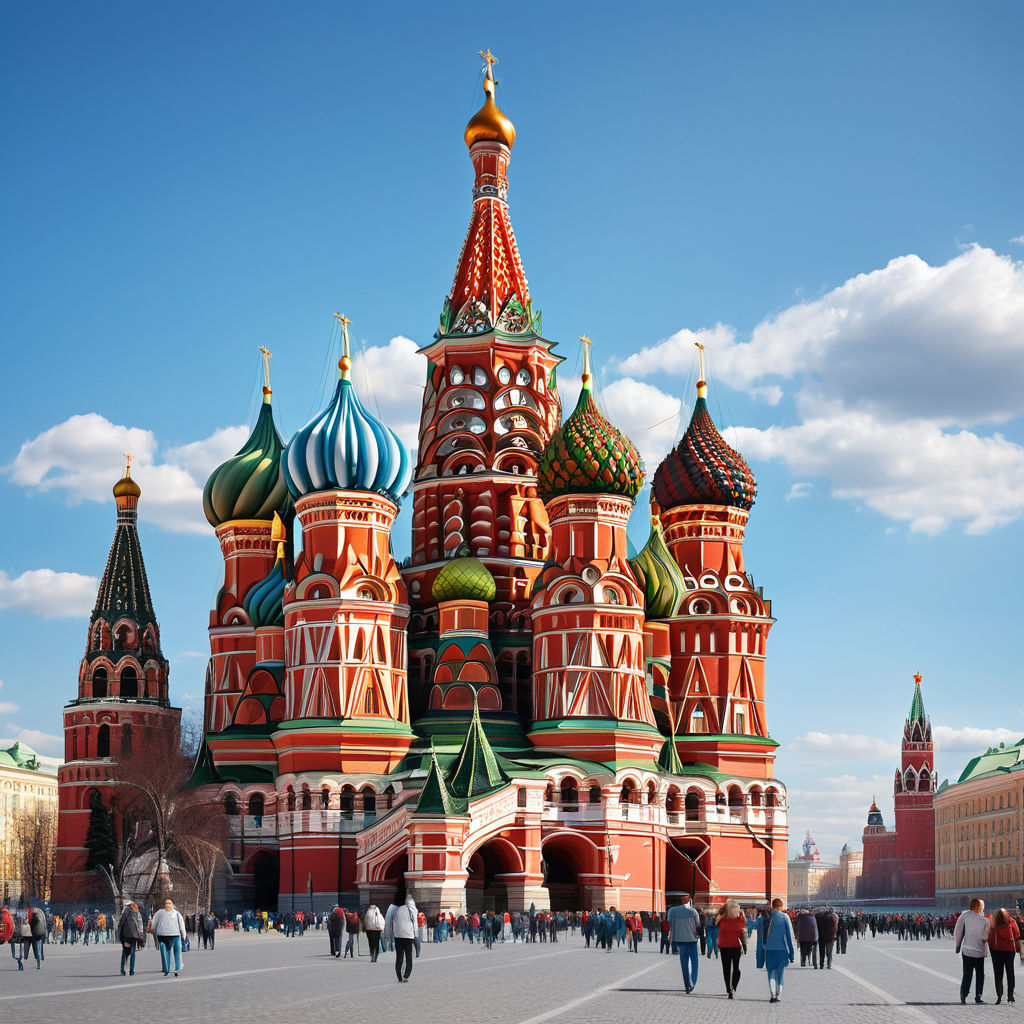Discover Russia: A Blend of Cultural Heritage and Modern Engagement
Exploring Russia's Cultural Richness, Cross-cultural Initiatives, and Social Dynamics

Introduction to Russia
Russia, the largest country in the world by land area, spans Eastern Europe and northern Asia, covering over 17 million square kilometers. It shares borders with numerous countries, including Norway, Finland, Estonia, Latvia, Lithuania, Poland, Belarus, Ukraine, Georgia, Azerbaijan, Kazakhstan, China, Mongolia, and North Korea. Major cities include Moscow (the capital), Saint Petersburg, Novosibirsk, and Yekaterinburg. Russia's rich cultural heritage is characterized by a blend of Slavic, Viking, and Byzantine influences, as well as its Soviet past. The country is renowned for its contributions to literature, music, ballet, and visual arts, with iconic figures like Leo Tolstoy, Fyodor Dostoevsky, Pyotr Tchaikovsky, and Wassily Kandinsky.
Cross-national and Cross-cultural Understanding
Russians generally perceive and engage with other cultures with a mixture of curiosity, respect, and skepticism. The country's historical isolation during the Soviet era and its complex geopolitical stance have shaped these attitudes. However, contemporary Russia actively promotes cross-cultural understanding through various initiatives. Significant cultural exchanges and educational programs highlight Russia's engagement with the world. The Russkiy Mir Foundation and Rossotrudnichestvo are key organizations that promote Russian language and culture abroad. Additionally, the government supports international students through scholarships and exchange programs, such as those offered by the Ministry of Education and Science of the Russian Federation. International partnerships also play a crucial role in fostering cross-cultural understanding. Russia is involved in numerous cultural and educational agreements with countries worldwide, including the BRICS nations (Brazil, Russia, India, China, and South Africa) and various European and Asian countries. These initiatives facilitate mutual respect and cooperation, enhancing global cultural ties.
Interactions and Social Dynamics
Interactions between Russians and foreigners are generally characterized by politeness and formality. Russian social behaviors are influenced by cultural values such as collectivism, respect for authority, and hospitality. These values are often reflected in the way Russians engage with outsiders. Social behaviors in Russia emphasize respect and formality, particularly in initial interactions. It is customary to address others with their full name and patronymic, and physical greetings, such as handshakes, are common. Hospitality is a significant aspect of Russian culture, and guests are often treated with warmth and generosity. Communication styles in Russia are typically direct and expressive. Russians value honesty and straightforwardness, and they are not averse to discussing serious topics openly. Non-verbal communication, such as maintaining eye contact and using hand gestures, also plays a significant role in interactions. Language is a crucial factor in facilitating interactions. Russian is the official language, and while many Russians, especially the younger generation, have some proficiency in English, multilingualism is not widespread. Learning basic Russian phrases can significantly enhance communication and foster positive interactions.
Views on Dating and Relationships
Dating and relationships between Russians and foreigners are becoming increasingly common, particularly in urban areas. Russian society tends to be open-minded about cross-cultural relationships, seeing them as opportunities for cultural exchange and personal growth. However, traditional values and societal norms can still influence dating dynamics. In Russian dating culture, there is often an emphasis on serious, long-term relationships. Courtship practices may include traditional gestures such as giving flowers and planning elaborate dates. Respect for gender roles is also a significant aspect of Russian dating culture, with men often expected to be chivalrous and protective. Cultural expectations and traditions, such as the importance of family approval and traditional gender roles, can impact relationships. Understanding and respecting these cultural norms is essential for successful cross-cultural relationships in Russia.
Marriage and Family
Marrying foreigners is generally accepted in Russia, although it comes with certain social and familial considerations. Legal considerations for international marriages are straightforward, with clear regulations for such unions governed by Russian civil law. Socially, Russian families may initially have reservations about cross-cultural marriages due to concerns about cultural differences and social compatibility. However, acceptance typically increases as relationships develop and families get to know the foreign partner. Family plays a central role in Russian culture, and marrying into a Russian family often involves understanding and respecting familial obligations and traditions. Common practices in cross-cultural marriages include celebrating both Russian and foreign traditions, creating a blended cultural environment. For example, a couple might celebrate Russian holidays like New Year and Maslenitsa alongside holidays from the foreign partner's culture.